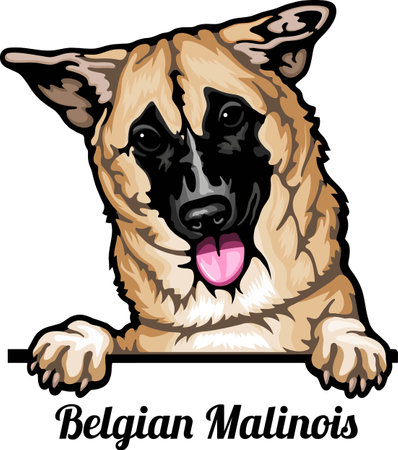Understanding the Kennel Club Good Citizen Dog Scheme
The Kennel Club Good Citizen Dog Scheme (KCGCDS) is the UK’s largest dog training programme, designed to promote responsible dog ownership and enhance the bond between you and your canine companion. Established by The Kennel Club, this scheme is open to all dogs, regardless of age or breed, and provides a structured pathway for owners who want their pets to become well-behaved members of society. The scheme is divided into progressive levels—Puppy Foundation, Bronze, Silver, and Gold—each focusing on key obedience skills and real-life scenarios that every dog may encounter in daily British life. Not only does this initiative foster better behaviour in public spaces, but it also benefits owners by offering peace of mind and support from a nationwide network of accredited trainers. By participating, owners gain invaluable knowledge about dog care within the UK context, while dogs develop essential social skills and confidence, making them more welcome in the community. The KCGCDS stands as a testament to the importance of preventive training for lifelong health and happiness—for both pets and their people.
2. Choosing the Right Training Resources and Clubs
Finding the best training clubs and resources is crucial for success in the Kennel Club Good Citizen Dog Scheme. The UK has a wide range of options, but it’s important to ensure you select a reputable club with qualified instructors who are familiar with the scheme’s standards.
How to Select Reputable Training Clubs
Start by looking for clubs that are officially listed by The Kennel Club or affiliated organisations. Check for positive reviews from local dog owners, and ask your vet or pet shop for recommendations. A reliable club should provide a safe, clean environment and encourage responsible dog ownership.
Checklist for Evaluating Training Clubs
| Criteria | What to Look For |
|---|---|
| Accreditation | Kennel Club listed or approved |
| Instructor Qualifications | Certified trainers with experience in the Good Citizen Dog Scheme |
| Class Sizes | Small groups for individual attention |
| Facilities | Clean, secure, and well-maintained premises |
| Feedback | Positive testimonials from local owners |
Identifying Qualified Instructors
A qualified instructor should have formal training credentials, such as Kennel Club accreditation or membership with recognised bodies like the Association of Pet Dog Trainers (APDT UK). Don’t hesitate to ask about their experience with the Good Citizen Dog Scheme specifically, and observe a class if possible before enrolling.
Questions to Ask Potential Instructors:
- Are you accredited by The Kennel Club or another professional body?
- How many dogs have you guided through the Good Citizen Dog Scheme?
- What training methods do you use? (Look for reward-based approaches)
Selecting a reputable club and an experienced instructor sets a strong foundation for your dog’s learning journey and increases your chances of successfully achieving each level within the scheme.
![]()
3. Preparing Your Dog Mentally and Physically
Before embarking on the Kennel Club Good Citizen Dog Scheme, it is essential to ensure your dog is both mentally and physically prepared for the journey ahead. Prioritising your dog’s health and wellbeing will lay a solid foundation for successful training and positive experiences throughout the scheme.
Prioritising Your Dog’s Physical Health
Begin by booking a thorough health check with your local vet. Regular veterinary visits are crucial to confirm your dog is up to date with vaccinations, flea and worm treatments, and overall wellness. Discuss any concerns about mobility or underlying medical issues that may affect their participation in the scheme’s activities.
Nutrition and Exercise
Feed your dog a balanced diet suitable for their age, breed, and activity level, as recommended by your vet or a qualified canine nutritionist. Adequate daily exercise—whether brisk walks in the local park or interactive play sessions—will help maintain optimal fitness, prevent obesity, and reduce excess energy before training sessions.
Supporting Mental Wellbeing
Mental stimulation is just as important as physical health. Incorporate enrichment activities such as puzzle toys, scent games, and varied walking routes to keep your dog engaged and focused. Consistency in routines helps dogs feel secure; try to establish regular feeding, walking, and rest times each day.
Mindset Preparation for Training
Familiarise your dog with basic obedience cues like ‘sit’, ‘stay’, and ‘come’. Use positive reinforcement techniques—such as treats, praise, or toys—to encourage desired behaviours. If your dog displays nervousness or anxiety in new environments or around other dogs, gradually increase their exposure through short outings to busy parks or pet-friendly cafés, always rewarding calm behaviour.
Building Trust and Confidence
Spending quality time together not only strengthens your bond but also builds trust—a key component in successful training. Keep sessions short and enjoyable, ending on a positive note to boost your dog’s confidence. Remember, patience is vital; every dog progresses at their own pace.
A healthy body and a happy mind will enable your dog to approach the Kennel Club Good Citizen Dog Scheme with enthusiasm and resilience, making the learning process enjoyable for both of you.
4. Mastering Essential Skills and Socialisation
The Kennel Club Good Citizen Dog Scheme places strong emphasis on your dog’s ability to demonstrate core skills, proper social behaviour, and polite manners. By mastering these essentials step-by-step, you’ll help your dog become a well-rounded companion and meet the scheme’s criteria with confidence.
Step-by-Step Guide to Teaching Basic Commands
| Command | Method | Tip for Success |
|---|---|---|
| Sit | Hold a treat above your dog’s nose and slowly move it back over their head. As they follow the treat, their bottom will naturally lower into a sit. Reward immediately. | Practice in short sessions for better retention. |
| Stay | Ask your dog to sit, then show your palm and say “stay.” Take a step back, return, and reward if your dog remains still. Gradually increase distance and duration. | Use a calm tone and build up time slowly. |
| Recall (“Come”) | Crouch down and call your dog enthusiastically by name followed by “come.” Reward generously when they reach you. | Practise in secure areas before trying in open spaces. |
| Loose Lead Walking | Hold the lead in one hand and treats in the other. Reward your dog for walking by your side with a loose lead. Stop moving if they pull, and resume when the lead is slack. | Consistency is key; be patient with progress. |
Developing Good Social Behaviour
Your dog should feel comfortable around people, other dogs, cyclists, and traffic – all common encounters in UK parks and towns. Arrange controlled introductions in various settings to gradually build confidence. Attend local puppy classes or group walks organised by responsible trainers or community groups. Remember to praise calm behaviour and redirect unwanted excitement or anxiety gently.
Manners Required by the Scheme
- Greeting People Politely: Train your dog to sit before being greeted by others, avoiding jumping up which is discouraged by the scheme.
- Accepting Handling: Practise gentle grooming and allow friendly strangers to touch your dog’s paws, ears, and tail in a calm environment, preparing them for vet visits or public scrutiny during assessment.
- Settling Quietly: Encourage your dog to settle at your feet or in a designated spot while you chat with others or wait at cafés—an essential skill for life out and about in the UK.
Top Tips for Everyday Manners
- Reward Calmness: Always acknowledge relaxed behaviour with treats or praise.
- Avoid Over-correction: Redirect unwanted actions rather than scolding; positive reinforcement works best for long-term results.
- Keep Training Sessions Short: Little and often helps prevent boredom and reinforces learning.
Nurturing these essential skills and positive behaviours not only prepares your dog for the Kennel Club Good Citizen Dog Scheme but also ensures harmonious outings within British society, from country walks to bustling high streets.
5. Navigating Assessment and Progression Levels
Understanding the Assessment Process
The Kennel Club Good Citizen Dog Scheme is structured to promote responsible dog ownership, with a clear progression from basic skills to advanced training. Each stage of the scheme—Puppy Foundation, Bronze, Silver, and Gold Award—has its own assessment criteria designed to ensure both you and your dog are ready for everyday life in the UK.
Puppy Foundation Assessment
This is the entry level, focusing on socialisation, basic obedience, and gentle handling. Puppies learn essentials like walking on a loose lead and responding to their name. The assessment is informal and positive, providing a great foundation for future learning.
Bronze Award Assessment
The Bronze level introduces more structure. Your dog will be assessed on lead walking, recall, grooming acceptance, and simple stays. The emphasis is on control and good manners in public spaces, essential for UK urban and rural environments alike.
Silver Award Assessment
At this intermediate level, your dog faces more challenging tasks such as controlled greetings with strangers, road safety awareness, and longer stays. These skills are particularly relevant for navigating busy British parks or high streets safely.
Gold Award Assessment
The Gold Award represents advanced proficiency. Dogs must demonstrate off-lead heelwork, emergency stops, relaxed waits at distances, and polite behaviour around distractions. This level ensures your dog can handle complex situations with confidence.
Tips for Success at Every Level
- Train Little and Often: Short daily sessions suit most dogs and help reinforce learning.
- Use Positive Reinforcement: British trainers often recommend treats and praise for good behaviour.
- Familiarise with the Environment: Practise assessments in locations similar to test venues—think local parks or community halls.
- Stay Calm and Patient: Dogs sense your emotions; keep training upbeat and stress-free.
Progressing Through the Scheme
Each award builds on the last, so it’s important not to rush progression. Master each skill before moving forward. Celebrate milestones with healthy treats or countryside walks—typical ways UK owners reward their pets. With commitment and patience, you’ll enjoy not just awards but a well-behaved companion ready for any British adventure.
6. Troubleshooting and Common Challenges
Understanding Typical Training Hurdles
While preparing your dog for the Kennel Club Good Citizen Dog Scheme is highly rewarding, it can also present a few stumbling blocks. Many UK owners experience similar challenges, such as recall difficulties in busy parks, dogs becoming distracted during exercises, or anxiety in new environments. Recognising these issues early will help you address them calmly and effectively.
Advice for Overcoming Distractions
British parks and public spaces are filled with tempting distractions—from squirrels to passing joggers. To build reliable focus, gradually introduce distractions during your training sessions. Begin with quiet locations, then slowly progress to busier areas. Reward calm behaviour and use high-value treats as incentives. Remember, patience is key; it may take several weeks before your dog consistently responds amid commotion.
Managing Socialisation Setbacks
Some dogs may feel overwhelmed by meeting other dogs or people during the scheme’s group exercises. Arrange playdates or controlled introductions with well-behaved dogs in familiar environments before attending classes. If your dog shows signs of stress, step back and practice at their pace—forcing interactions can be counterproductive. Consult a local trainer if you notice persistent nervousness or reactivity.
Tackling Specific Behavioural Issues
Common problems like excessive barking, jumping up, or pulling on the lead can hinder your progress through the scheme. Address these behaviours individually: for instance, teach a reliable “sit” or “stay” to discourage jumping, and use positive reinforcement methods to encourage loose-lead walking. Consistency is crucial—ensure all family members follow the same approach.
When to Seek Professional Help
If you encounter persistent behavioural challenges or feel unsure about any aspect of the training, don’t hesitate to seek guidance from an accredited UK dog trainer or behaviourist. The Kennel Club website lists reputable trainers who understand the scheme’s requirements and British pet culture.
The Importance of Perseverance
Every dog learns at its own pace. Remember that setbacks are normal—even experienced handlers face obstacles on occasion. Celebrate small successes, maintain a positive attitude, and adapt your methods as needed. With time, patience, and a little British resilience, you and your dog can successfully navigate the path towards Good Citizen status.
7. Celebrating Success and Next Steps
Achieving success in the Kennel Club Good Citizen Dog Scheme is a proud milestone for both you and your dog. Recognising this achievement not only strengthens the bond with your canine companion but also reinforces positive behaviours. Consider rewarding your dog with their favourite healthy treat or a new toy, and don’t forget to praise them warmly – positive reinforcement is key to maintaining good habits.
Recognising Achievement
Display your certificate at home as a reminder of the hard work you’ve both put in. You might also share your accomplishment with friends, family, or on local community social media groups. Some owners choose to mark the occasion with a special walk or by hosting a small get-together with fellow dog owners who have completed the scheme.
Participating in Local Events
Engage with your local dog-loving community by taking part in dog shows, charity walks, or Kennel Club events. These gatherings are an excellent way to meet like-minded people, exchange training tips, and help your dog continue developing their social skills. Many UK towns host fun days or ‘doggy socials’ where Good Citizen graduates are especially welcome.
Ongoing Good Citizenship
Your journey doesn’t end with the award. Continue practising the skills learned during the scheme on daily walks and outings. Consider progressing to higher levels within the Good Citizen Dog Scheme, such as Silver and Gold awards, which further enhance obedience and social responsibility. Volunteering for community initiatives – for example, visiting care homes or participating in school talks about responsible dog ownership – is another wonderful way to embody ongoing good citizenship.
Inspiring Others
Finally, be proud of what you and your dog have achieved together. By being a role model in your community, you can inspire other owners to begin their own Good Citizen journey, helping to create happier, healthier environments for everyone – two-legged and four-legged alike.


